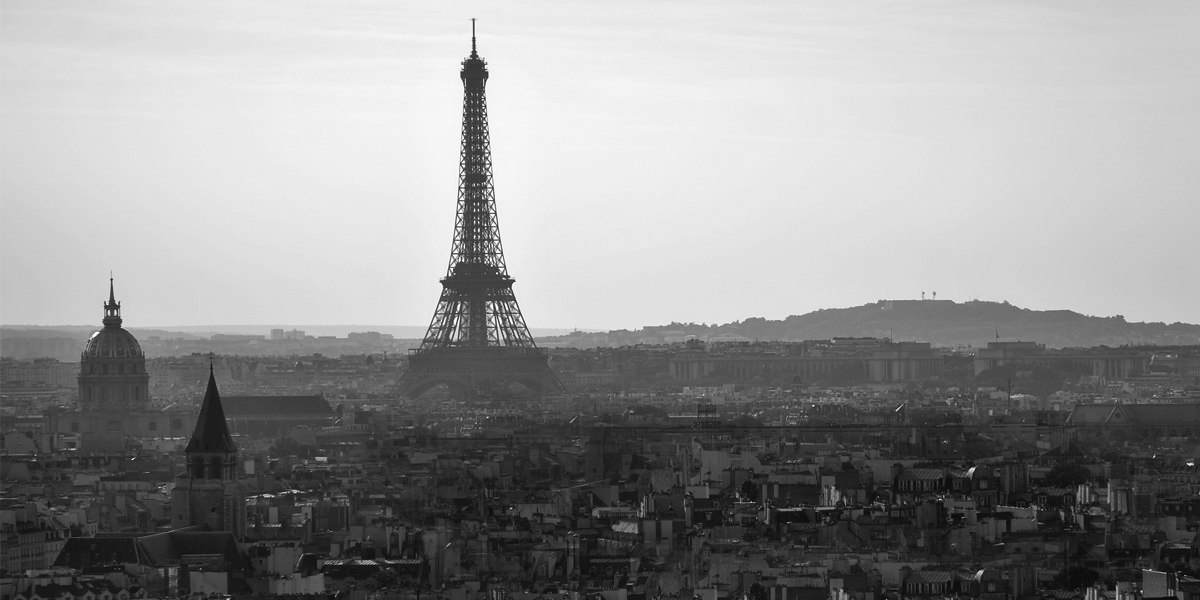Bringing it home
In December, politicians, campaigners and diplomats will come together in Paris for the latest in a series of UN negotiations aimed at tackling the world’s greatest collective challenge: how to catalyse action on climate change. But whether or not these...
In December, politicians, campaigners and diplomats will come together in Paris for the latest in a series of UN negotiations aimed at tackling the world’s greatest collective challenge: how to catalyse action on climate change. But whether or not these talks put us on a plausible path to keeping global temperature rises to 2C – the generally agreed safe limit – will ultimately be up to us.
The UN gathering is one of the most complex diplomatic negotiations in the history of mankind, with all kinds of competing political, economic, social, not to mention environmental, interests around the table. In the end, however, our political leaders respond to their national political interests and so public pressure is crucial to securing stretching deal.
But there is currently no sense that climate change is high on the political or public ‘to-do’ list. The UK is in a crucial election year, but a discussion about the future of our planet is not on the agenda. As Ruth Davis points out in this collection of essays, the fact that people at present might be more focused on jobs or the NHS is hardly surprising; in fact, it’s a perfectly sensible response to what she calls the “junkie politics” of the climate debate: “riding high on NGO calls to save the world one minute, and crashed out against the realities of international relations the next.” The chaos of Copenhagen in 2009, the last time the world came together to try to pin down a deal, is a case in point.
There are reasons to think this time might be different, however, not least because the scars of Copenhagen run deep for many involved. In Paris, the world’s biggest polluters will be on board for a start, with the US and China now committed to joint action to reduce emissions and decarbonise their energy supplies. This vastly reduces other nations’ scope for excuses. There is also a growing convergence around the territory on which a realistic deal might be done. Indeed you can find a word being bandied about not often associated with climate change and our prospects of doing something about it: hope.
Hope is a useful starting point, but only gets you so far. If 2015 is going to be remembered as the year the world finally got serious about our climate threat, we will need bold and imaginative political leadership.
The starting point should be the places people live. As the recent Fabian Society report Pride of Place showed, people can find it hard to emotionally engage with large scale, abstract environmental issues. Instead, when citizens think of ‘the environment’, they tend to think of the local places they live and the people they live there with. We need to ensure that people feel empowered to to make positive environmental interventions in their own neighbourhoods – a warmer home that wastes less energy; a well-maintained park that feels safe and inviting. If we can’t take control of the things we see in our own lives, how could we ever think we might stop the seas rising?
There is a critical role for legislation at the international level in this. As Nick Mabey puts it, “the only way to win the national politics of limiting climate risk is through a credible international agreement. Without the reassurance that others are acting to reduce global climate risk, countries will always shy away from taking firm action.” And as it is with states, the same goes for people. A key barrier to people living more sustainably is a sense of powerlessness, the feeling that anything they could personally do is dwarfed by the scale of the challenge. Climate change is a classic ‘collective action problem’: an individual might decide to withhold participation in a group activity and ‘free-ride’ if they felt their personal behaviour made no difference to the outcome. We need international agreements to bind us into a sense of collective endeavour, a sense that everyone is pulling in the same direction, doing their bit to an appropriate and achievable level. This is a politics of both/and: the politics of the global conference and the local green space.
Starting at home also means showing how climate change is not an abstract, far off threat, but a clear and present danger to the things we hold dear: the nature that surrounds us and the relationships that define us. As Adam Corner puts it in this volume, we need to “join the dots between climate change and people’s lives”, establishing climate change as a “social fact” rather than a scientific one.
Marc Brightman suggests in chapter 6 that politicians could do this “by embracing environmentalism as a political issue, and arguing that economic inequality and climate change are connected through the politics of sustainability.” Kerry McCarthy MP is a politician herself and, in Bristol, is on the frontline of the apparent ‘surge’ of the Green Party. She finds that people’s pro-environmental instinct is most powerfully manifested in wanting their immediate surroundings to be better. She argues that “we need to empower communities so that they feel the protection and preservation of their natural (and built) environment is in their hands; that they are its stewards.” Charlotte Billingham stresses the importance of the European Union here. The EU is beginning to re-find its feet in the climate leadership stakes after being left on the sidelines in Copenhagen. But it needs to show how its investment and interventions make a difference on the ground, “so people can see for themselves what is being done, which could empower them to take further action”.
What we need from our politics is a compelling story about the challenges we face and a plausible means to address them. Yet environmentalism has seemed to fail on both counts. The managerial tone of our environmental conversation, that talks about carbon budgets and biodiversity offsets rather than the beauty of the places in which we grew up, has failed to embed the concepts of sustainability and conservation in people’s lives and build a broader sense of environmental citizenship. What’s more, the distant, doom-laden rumblings of global climate brinkmanship don’t tend to suggest a practical solution is imminent.
So we need our political leaders to inspire us with what’s possible and engage us in a conversation about the collective challenges we face. The complexity of climate negotiations, the expertise and the science involved, and the democratic distance of the UN can make the prospect of Paris very remote and disempowering. But at its simplest, it’s the only real means we have of balancing competing interests. As the contributors to this pamphlet argue, we must not see Paris as an end point: it is a critical staging post on a longer journey, not a single event.
We must not expect our politicians to return with tablets of stone that tell how the world will be ‘saved’ and a low-carbon economy ‘delivered’. What we need in this crucial year for climate is to find a hopeful story about why Paris matters, for our values, for our national interest and for our daily lives; that engages us all in the task of our times, and serves as a promise of purposeful commitment to the long process of political change.

